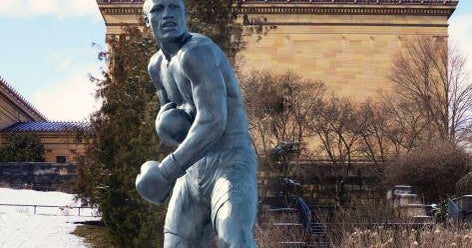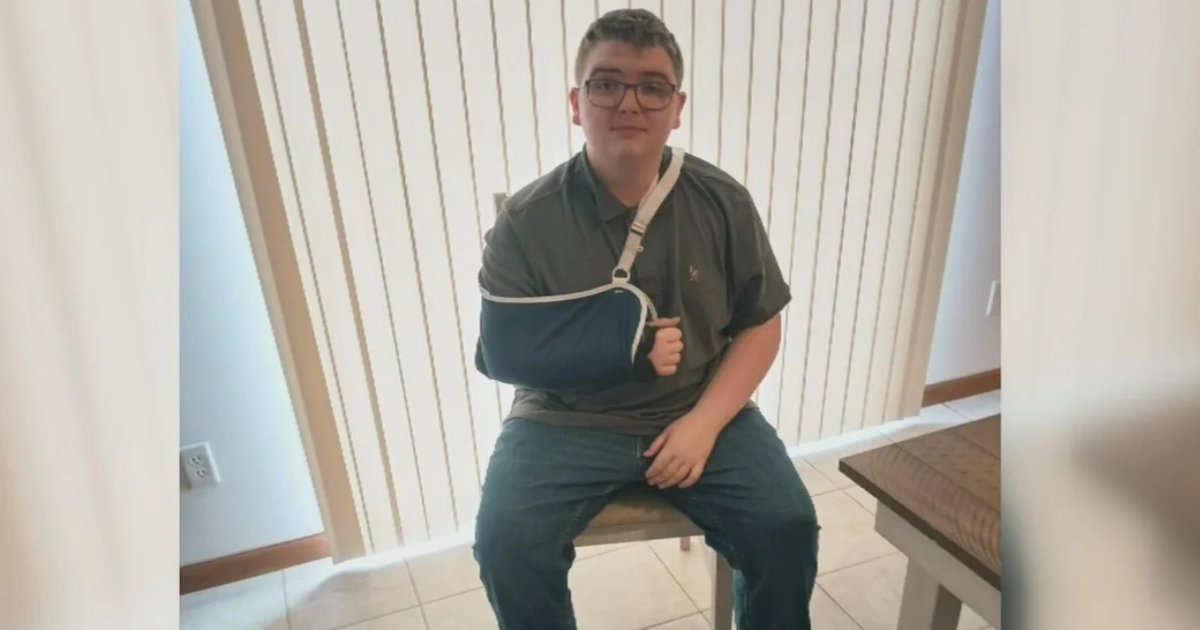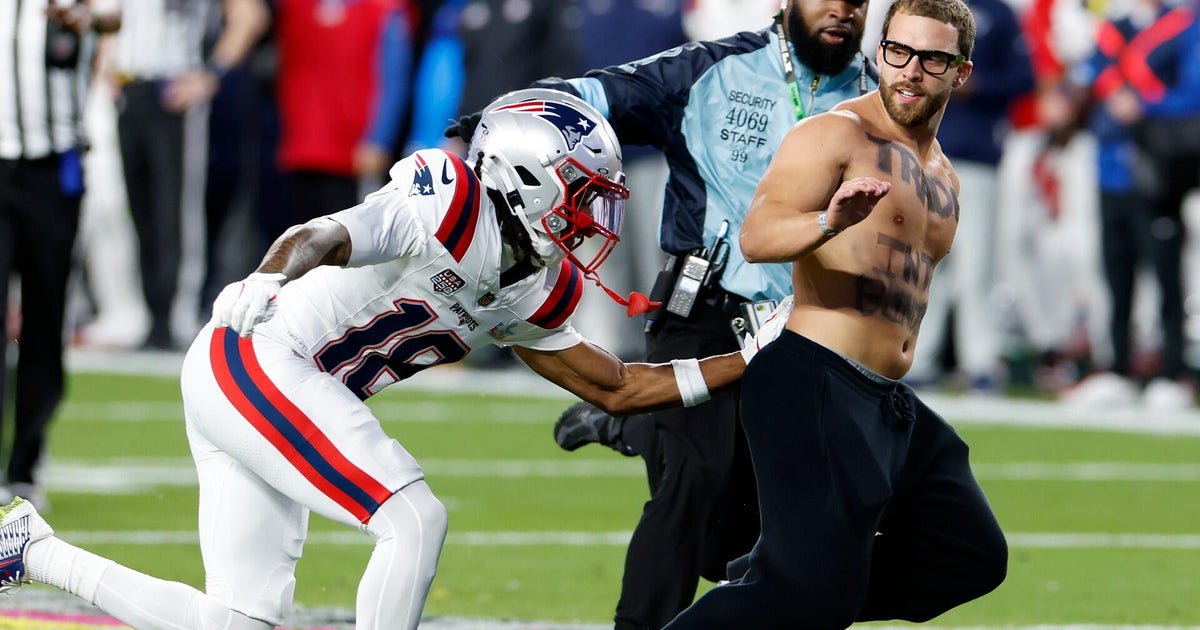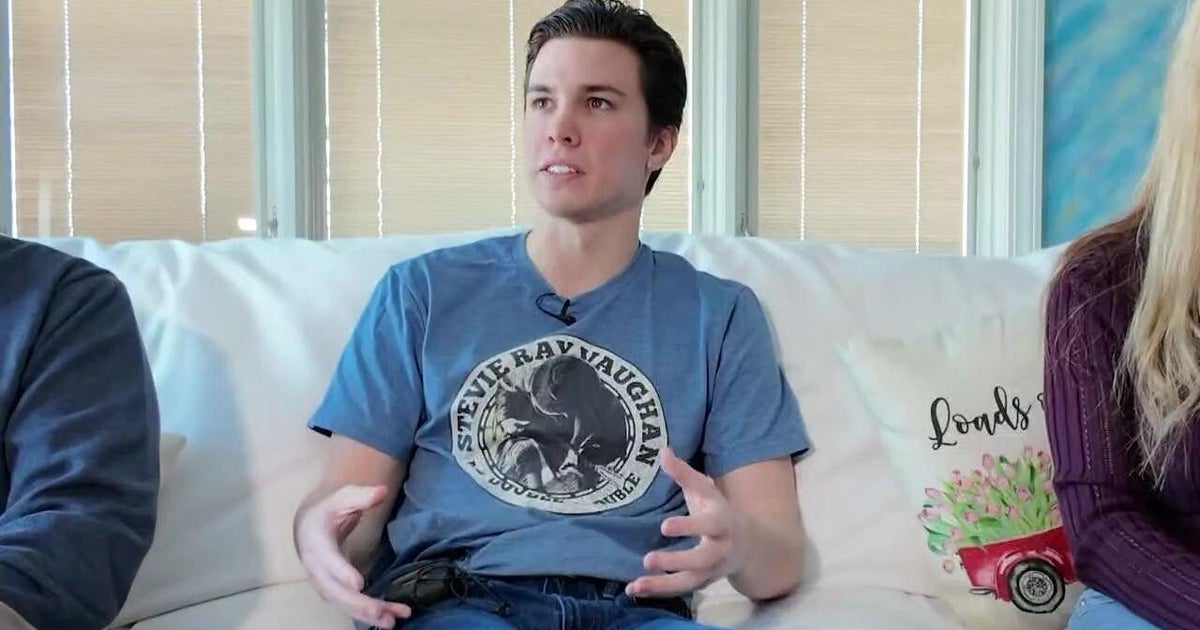Remembering Joe Paterno
By Joseph Santoliquito And Ben Simmoneau
PHILADELPHIA (CBS) —You thought he would live forever, framed there leading his team on to the field in his trademark high trousers, wide-rimmed glasses and black cleats, like his immortalized bronze statue that stands outside Penn State's Beaver Stadium forever moving forward holding aloft the No. 1.
But when the love of his life was taken away from him, when the thing he built into a national powerhouse was gone, Joe Paterno's soul went with it, gradually withering. Surrounded by his family, and in the prayers and thoughts of countless many he touched on and off the field, Paterno died Sunday morning at 85 due to lung cancer.
That's the official cause.
But to many that knew him, to the many, many he coached and whose lives were forever altered by Paterno, the coaching icon died of a broken heart.
Paterno was the head coach at Penn State for 46 years, and tallied an all-time high 409 victories for the Nittany Lions, before unceremoniously being fired by the school's board of trustees on November 9 as a casualty of the Jerry Sandusky sexual-abuse scandal.
Soon after, Paterno, removed from the one thing he devoted much of his adult life to, was diagnosed with cancer on November 18th after being dismissed by Penn State.
Paterno took over for Rip Engle in 1966 and won national championships in 1982, beating Herschel Walker and Georgia in the Sugar Bowl, and Jerome Brown's Miami team in the Fiesta Bowl for the 1986 National Championship.
He left Penn State with a 409-136-3 overall record--the most victories by a Division I coach.
"My first thoughts about Joe are not as a coach, because it goes way beyond that," former Penn State linebacker Matt Millen said. "He was an educator and a teacher. He taught lessons, some football lessons, but mostly life lessons. He taught you how to treat others and how to conduct your life. He did it with his actions and in his life.''
Paterno brought a program that played in the "cow pastures" of middle Pennsylvania into national prominence in the 1970s, producing one Heisman Trophy winner, local product John Cappelletti, who won the Heisman in 1973.
The residue of the Sandusky scandal will stain Paterno's legacy indefinitely. Before that happened, "JoePa," as he was affectionately known by Penn State fans, had an impeccable reputation, a shining paragon of old-school family values and everything good about college football, and to those that played for him, everything in life. But Paterno was heavily criticized for the handling of the allegations against Sandusky, going to his superiors after being notified and nothing more.
Paterno was never charged, though was castigated for failing to do more to thwart the Sandusky controversy.
It's something Paterno would later openly regret, saying "I should have done more."
Still, Paterno was revered by many who played for him. A Brown University graduate, Paterno began his coaching tenure at Penn State under Engle in 1950, after coaching at his alma mater, Brown, for five years.
"There will never be another like him," said NFL Hall of Famer Franco Harris, who played for Paterno in the early-1970s. "He gave everything to his players and to the university, and I hope they honor him the way he deserves to be honored. I know he touched my life, and the lives of all of his players. He was a very special, special man who I'll never forget."
Paterno had five undefeated teams (1968, 69, 73, 86 and 94) and had a 24-12-1 record in bowl games. He guided the Nittany Lions to consecutive 11-2 seasons in 2008 and '09.
Paterno's far-reaching influence affected many in the coaching community.
"I am very sad to hear the news of Joe Paterno's passing," Temple head coach Steve Addazio said. "He was someone who I had a great deal of respect for, both growing up as a young man and as a football coach. He did so much for college football, athletics as a whole, and education. The positive influence he had over so many people and what he's done for collegiate football and athletics will never be duplicated. He will be greatly missed. Our deepest sympathies go out to the entire Paterno family and the Penn State community."
It was a difficult time for former players like Adam Taliaferro, the Nittany Lion that started as a true freshman out of local Eastern High School in Voorhees, New Jersey who was paralyzed in a game against Ohio State in September 2000.
"It's a very, very sad day for everyone," Taliaferro said. "When I had my injury, and I couldn't play football anymore, Coach Paterno made sure he did anything he could do to help me. That says a lot about the man, who he was, and how he affected my life. When I first made a commitment to Penn State, he told me that I was part of the family now, and that's the thing you realize with Coach Paterno and what he did at Penn State, that is was a family atmosphere. Penn State lost its heart today."
For the players on Paterno's most recent team, they can always embrace the fact that they played on the coaching legend's last team.
"It's a really sad day," said Pete Massaro, a Marple Newtown graduate who plays defensive end for the Nittany Lions. "Coach Paterno meant so much to so many people and he did so many things for this town and this football program. He set the benchmark for a student/athlete and what it means to be a Division I football player. Being on his last team means something to me and the other guys.
"Our responsibility now is to take the things Coach Paterno taught us and move this Penn State program forward. I truly believe in all the things Coach Paterno taught us and what it means to be a man and being successful in everything you do in life. It falls on our shoulders to continue on in his name and that's the task we face going into this new generation of Penn State football under Coach [Bill] O'Brien. Being on Coach Paterno's last team and being a small part of his legacy is something in my life that I will treasure forever."







